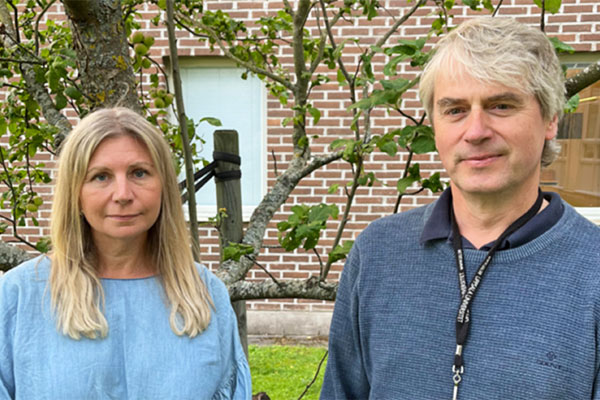Sweden, through its node at Uppsala University, has been a full member of EATRIS since 2015. EATRIS (European Infrastructure for Translational Medicine) provides unique infrastructures focusing on five product platforms: biomarkers, advanced therapy drugs, imaging & tracing, small molecules and vaccines.
The Swedish node of EATRIS has been supported until this year by the Swedish Research Council's infrastructure initiative, which has since been discontinued. Therefore, it is gratifying that in early 2022, Vinnova awarded a substantial grant for three years to consolidate the Swedish node. The grant will make it possible to pay for a part-time Swedish National Director, a full-time coordinator and a part-time communicator.
New National Director in the middle of the pandemic
Pontus Aspenström, Researcher at the Department of Immunology, Genetics and Pathology, took up the role of National Director in autumn 2020 in the middle of the pandemic and restrictions. This was challenging, of course, but the circumstances also opened up for increased collaboration between the coordinating countries and also between research groups that might not have found each other otherwise.
Sweden an important provider of infrastructure
Ulrika Bäckman has worked as the national coordinator since the beginning and thus provides continuity for the node's activities. The Swedish node works actively to promote and make available Swedish research infrastructure and expertise in an international arena. The efforts have proven Sweden to be an important provider of infrastructure and an attractive partner for both national and international users. The demand is high and small-scale industry is constantly asking for academia's knowledge and resources, researchers see added value in contributing their expertise, and this is where EATRIS can contribute positively.
“Through longer-term funding under the Vinnova umbrella, we see great opportunities to grow and connect to unique research infrastructures that in turn can strengthen Sweden's competitiveness as a member of EATRIS,” says Pontus Aspenström and continues. “We hope this can lead to an increased commitment from the higher education institutions to promote each other's unique niche and expertise. A solid foundation in the node has already been built and, with increased visibility, EATRIS can be expected to be here to stay.”
